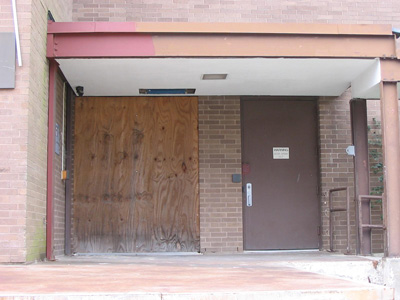The Differences Between Modified Bitumen and TPO
The commercial flat roofing industry is crowded with various types of roofing systems, two of which are modified bitumen and thermoplastic polyolefin (TPO). The former has been used for decades, while the latter is fairly new. Length of use is just one of many differences between the two systems.
1. History
Modified bitumen has been the go-to commercial flat roofing system for roofers since as early as the 1970s. This roofing system is considered to be a traditional method of flat commercial roofing. It has remained popular within the industry for its proven ability to withstand the effects of time.
Bitumen itself has been lauded for its adhesive and waterproofingWaterproofing is the application of materials or coatings de... More qualities for over 5000 years. While early societies used bitumen as a reliable construction material, it is still used today. In fact, due to its versatility, over 100 billion tons of bitumen are used every year around the world.
TPO systems, on the other hand, are relatively new to the industry. These systems have been used by commercial roofing professionals since the 1990s. TPO roofs became popular in the U.S. due to their wide range of benefits and now account around for 40 percent of installed commercial roofing membranes.
2. Materials
Bitumen is a sticky substance, one with a high level of viscosity. It is also waterproof. These features make it useful for roofing and even paving. Bitumen consists of asphalt combined with polymerized rubber or plastic, then reinforced with fiberglass to give it desirable waterproof qualities.
Modified bitumen flat roof systems are made with additional substances (hence the name “modified”), such as styrene butadiene styrene (SBS) or atactic polypropylene (APP), that improve flexibility. APP-modified bitumen roofs have the ability to resist UV light damage, cracking, blistering, and oxidationOxidation is a chemical reaction in which a substance combin... More.
TPO roofing systems feature a single-ply rubberlike membrane that extends over the entire surface of the flat roof. TPO roofs consist of layers of materials, including polyester fabric inserted between layers of flexible polymers. Working together, the layers give the membrane strength and flexibility.
During the formulation process of single-ply TPO roofs, plasticizers are not included. Being fully recyclable and featuring UV-resistant properties, TPO roofing systems are highly valued. As a recyclable roofing system, it is an environmentally friendly option where nothing is left to discard.
3. Installation
Installing a modified bitumen roofing system requires the use of an open flame torch, which can be a major fire hazard. Mishandling the installation while using the torch has led to a number of buildings catching fire. Some insurers refuse to cover roofers utilizing the open torch method.
The heat from the torch adheres the membrane to the substrate. The seams become watertight. The installation is completed by laying a smooth or granular surface resembling gravel, which offers protection from UV rays. Modified bitumen is not normally installed over existing roofing materials.
Ten-foot-wide rolls of TPO are unrolled and subsequently screwed down or adhered to the substrate. A watertight bond is created when the sections are heat welded together. Although installation is quick, the heat welding must be performed correctly to ensure the seams are optimum.
Unlike modified bitumen flat roofing systems, the TPO system can be installed over a range of different types of existing rooftops. Without the need to tear out the existing roof, the property owner saves significantly on roofing costs and avoids the hassles of removal.
4. Cost
Modified bitumen roofs are more affordable than TPO systems. On average, the cost per square foot installed is $2.50 to $4.00. So, a 1500 square-foot roof would have a total cost of $3750 to $6000. Disposing the old roof adds additional cost, making the total cost $6000 to $12,000.
TPO flat roofing systems are costlier, averaging $3.50 to $9.50 per square foot. The total cost for outfitting a roof with a TPO system is a range between $7000 and $11,500. The condition of the roof, its size, access to the roof, and type of warranty also influence the price.
5. Maintenance
Although the granular surface of a modified bitumen roof system offers UV protections, the surface makes it difficult to repairRepair is the act of fixing or restoring damaged property, m... More drainage issues and pinpoint leaks. A buildup of water can eventually cause damage to the structureStructure refers to the framework or components of a buildin... More of the roof. Structural integrity issues can be costly to fix.
The smooth surface of a TPO roof, in contrast, is easy to maintain and clean. The ease of cleaning and overall maintenanceMaintenance is the routine care, inspection, and repair of a... More of the TPO roofing system means that the roof will endure, thereby saving the property owner from the cost of replacing or repairing the roof.
Whether you choose a modified bitumen roofing system or a TPO roof for your commercial property, the longevity of the roof demands the skill of qualified roofers, like those at Reliable Roofing. We are equipped with the tools and techniques to ensure your new roof is sound.
The insured commercial roofing contractors at Reliable Roofing install each roof according to the manufacturer’s specifications. Upon the completion of installation, the roof will remain protected from leaks and other types of roof damage. We are proud to stand behind the work we perform.
Our goal is to ensure your commercial roof functions at its best for as long as possible. To achieve this end, Reliable Roofing contractors perform repairs, replacements, inspections, and maintenanceMaintenance is the routine care, inspection, and repair of a... More. We also install equipment, such as solar panels, HVAC units, exhaust fans, and flashing.
If you elect to install a TPO roof, our contractors will use any of three installation methods: fully adhered, mechanically attached, or mechanically attached at the seams. A bitumen roof installation will require the torch-down method, which may be unsuitable for some buildings and substrates.
When you are in the market for a new commercial roof or simply need to make roof repairs, consult Reliable Roofing. We serve commercial properties in Chicagoland with our quality roofing services. We’ll work within your budget. Call us for a free estimate or answers to you roofing questions.












